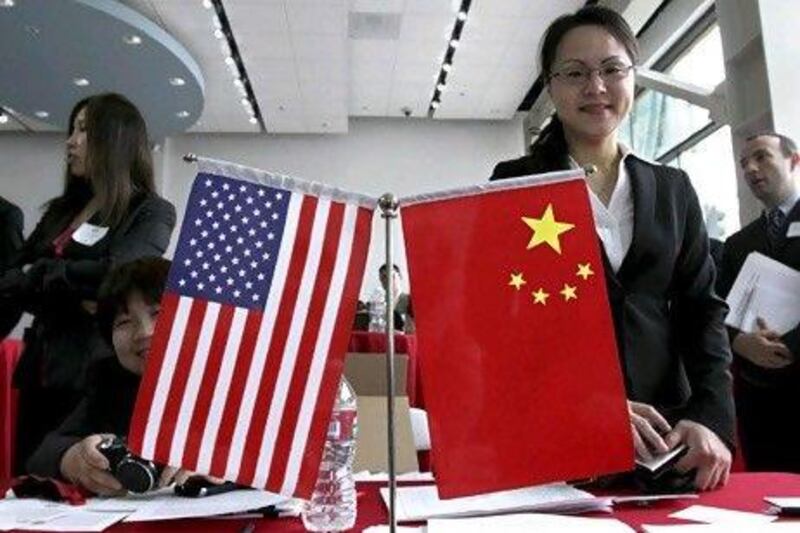Is China poised to become the world's next superpower? This question is increasingly asked as China's economic growth surges ahead at more than 8 per cent a year, while the developed world remains mired in recession or near-recession.
China is already the world's second-largest economy, and is likely to be the largest in 2017.
The question is reasonable enough if we don't give it an American twist. To the American mind, there can be only one superpower, so China's rise will automatically be at the expense of the United States .
This is way over the top. In fact, the existence of a single superpower is highly abnormal, and was brought about only by the collapse of the Soviet Union in 1991. The normal situation is one of coexistence, sometimes peaceful, sometimes warlike, between several great powers.
For example, Britain, whose place the US is often said to have taken, was never a "superpower" in the American sense. Despite its far-flung empire and naval supremacy, 19th-century Britain could never have won a major war against France, Germany, or Russia without allies.
The sensible question is not whether China will replace the US but whether it will start to acquire some of the attributes of a world power, particularly a sense of responsibility for global order. The question does not admit of a clear answer. The first problem is China's economy, so dynamic on the surface but so rickety underneath.
The analyst Chi Lo lucidly presents a picture of macro success alongside micro failure. The stimulus of 4 trillion yuan(Dh2.3tn) in November 2008, mostly poured into loss-making state-owned enterprises via directed bank lending, sustained China's growth in the face of global recession. But the price was an increasingly serious misallocation of capital, resulting in growing portfolios of bad loans, while excessive Chinese household savings have inflated property bubbles.
Moreover, Mr Chi argues that the crisis of 2008 shattered China's export-led growth model, owing to prolonged impairment of demand in the advanced countries. China now urgently needs to rebalance its economy by shifting from public investment and exports towards public and private consumption. In the short run, some of its savings need to be invested in real assets abroad, and not just parked in US treasuries. But, in the longer term, Chinese households' excessive propensity to save must be reduced by developing a social safety net and consumer credit instruments.
Moreover, to be a world economic power, China requires a currency in which foreigners want to invest. That means introducing full convertibility and creating a deep and liquid financial system, a stock market for raising capital, and a market rate of interest for loans.
The second problem is one of political values. China's further "ascent" will depend on dismantling such classic communist policy icons as public-asset ownership, population control, and financial repression. The question remains how far these reforms will be allowed to go before they challenge the Communist Party's political monopoly.
Two important cultural values underpin China's political system. The first is the hierarchical and familial character of Chinese political thought.
There is also little belief in the sanctity of human life. A pledge to protect human rights was written into the Chinese constitution in 2004; but this is mostly a dead letter. Similarly, private property ranks below collective property.
The West claims that its values are universal, and the US and Europe will not cease pressing those values on China. It is hard to see this process going into reverse, with China starting to export its own values.
China has a choice: it can accept western values or it can try to carve out an East Asian sphere to insulate itself from them. The latter course would provoke conflict not only with the US, but also with Japan and India. China's best possible future thus probably lies in accepting western norms while trying to flavour them with "Chinese characteristics".
But neither choice is a scenario for China's "replacing" the US. Nor, I think, is this what China wants. Its goal is to be respected, not to dominate.
Robert Skidelsky, a member of the British House of Lords, is a professor emeritus of political economy at Warwick University
* Project Syndicate





